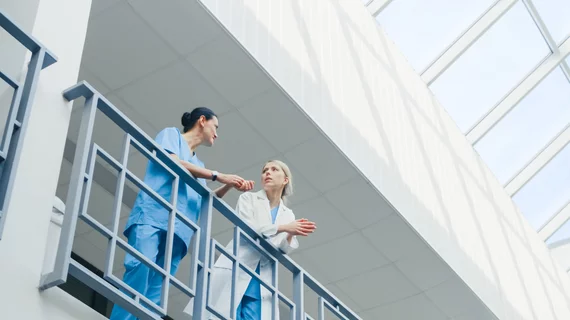‘Imaging at the speed of light’: New detector may enable cheaper, more accurate scans
Scientists in the U.S. and Japan have teamed up to develop a medical imaging technique that doesn’t require tomography. The approach may lead to more accurate and cost-effective radiological scans.
Tomography is a mathematical process used to reconstruct cross-sectional images from data in exams that utilize X-rays or gamma rays. This experimental work involves ultrafast photon detectors and doesn’t rely on conventional tomography.
Simon Cherry, PhD, a professor of radiology and biomedical engineering at the University of California, Davis, and colleagues believe they can ultimately scale their new discovery to meet the demands of real-world clinics.
“We’re literally imaging at the speed of light, which is something of a holy grail in our field,” Cherry, who is also senior author of the paper, added in a news item published Friday.
When positrons run into an electron inside the body, they destroy each other and give off what’s known as two annihilation photons. Until now, it’s been impossible to track these photons without using tomographic reconstruction due to the nature of current detectors.
Cherry and his team have overcome these issues, and can detect signals directly from the annihilation photons, no tomography required.
The research group, which also includes experts at the University of Fukui, Kitasato University and Hamamatsu Photonics, all in Japan, described the highly technical tests they undertook Oct. 14 in Nature Photonics.
Overall, the process relies on smaller pieces of equipment compared to bulky scanners and may allow for cheap, easy and accurate molecular imaging scans, the authors reported.
Read the full study here.

